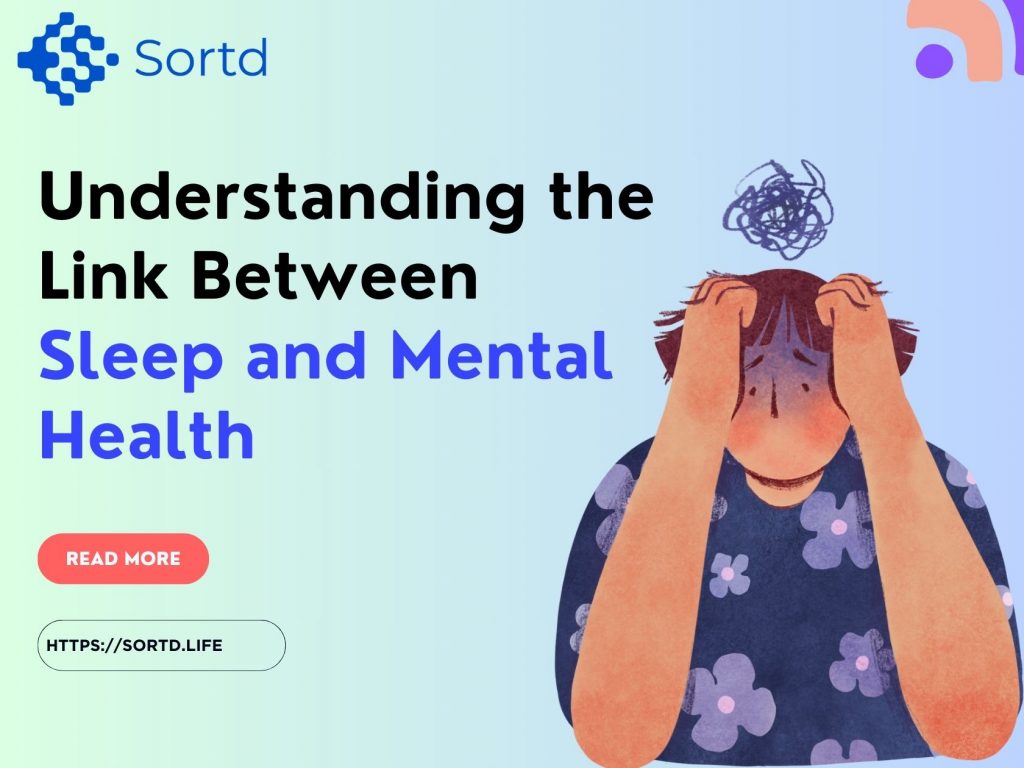
Understanding the Link Between Sleep and Mental Health
In the intricate tapestry of mental health, one often overlooked yet crucial factor is the quality of sleep. The connection between sleep and mental well-being is profound, influencing mood, cognitive function, and overall resilience. Join us on a journey to explore the intricate relationship between sleep patterns and mental health, uncovering insights that can empower you to prioritize rest for a healthier mind.
1. The Sleep-Mental Health Nexus:
Delve into the intricate interplay between sleep and mental health. Understand how disruptions in sleep patterns can contribute to conditions like anxiety, depression, and stress. Explore the science behind the restorative power of a good night’s sleep.
2. Impact of Sleep on Emotional Regulation:
Unravel the impact of sleep on emotional regulation. Learn how inadequate sleep can heighten emotional reactivity, making it more challenging to navigate daily stressors. Discover strategies to enhance emotional resilience through improved sleep.
3. Cognitive Function and Sleep Quality:
Examine the intricate relationship between sleep quality and cognitive function. From memory consolidation to decision-making, discover how a well-rested mind is better equipped to face intellectual challenges and maintain optimal mental clarity.
4. The Role of Sleep in Stress Management:
Explore the role of sleep in stress management. Unmanaged stress can disrupt sleep, creating a cyclical pattern that exacerbates both mental and physical health challenges. Gain insights into effective stress-reduction techniques for improved sleep. Also read Sound Therapy and Its Applications: Benefits and Stress Reduction
5. Sleep Hygiene: Building Healthy Habits:
Dive into the concept of sleep hygiene and its impact on mental health. From creating a conducive sleep environment to establishing pre-sleep routines, learn practical tips to enhance the quality of your sleep and promote mental well-being.
6. Common Sleep Disorders and Mental Health:
Examine common sleep disorders such as insomnia, sleep apnea, and restless leg syndrome, and their implications for mental health. Understand how addressing sleep disorders can positively impact overall mental well-being. Find expert anxiety disorder therapists near me
7. Mindfulness and Sleep:
Uncover the calming influence of mindfulness on sleep quality. Explore mindfulness techniques that can help quiet a restless mind, creating a serene mental space conducive to restful sleep.
8. Sleep, Mental Health, and Physical Health:
Recognize the intricate connection between mental health, physical health, and sleep. Investigate how a holistic approach to well-being, encompassing physical activity and nutrition, contributes to a harmonious balance that supports mental health.
9. Practical Tips for Improving Sleep:
Discover actionable tips for enhancing sleep quality. From establishing a consistent sleep schedule to moderating caffeine intake, learn practical strategies that can be integrated into your lifestyle for better sleep and improved mental health.
10. Seeking Professional Help:
Acknowledge the importance of seeking professional help when sleep challenges persist. Understand when to consult healthcare professionals, such as sleep specialists or mental health professionals, for personalized guidance and support.
Conclusion:
In the tapestry of mental health, sleep is a thread intricately woven with profound implications. By understanding and nurturing the delicate balance between sleep and mental well-being, we empower ourselves to navigate life’s challenges with resilience, clarity, and a foundation of holistic health. Prioritize your sleep, nurture your mind, and embark on a journey toward lasting well-being. Connect with us for the best Mental Health and Wellbeing Services in UK
